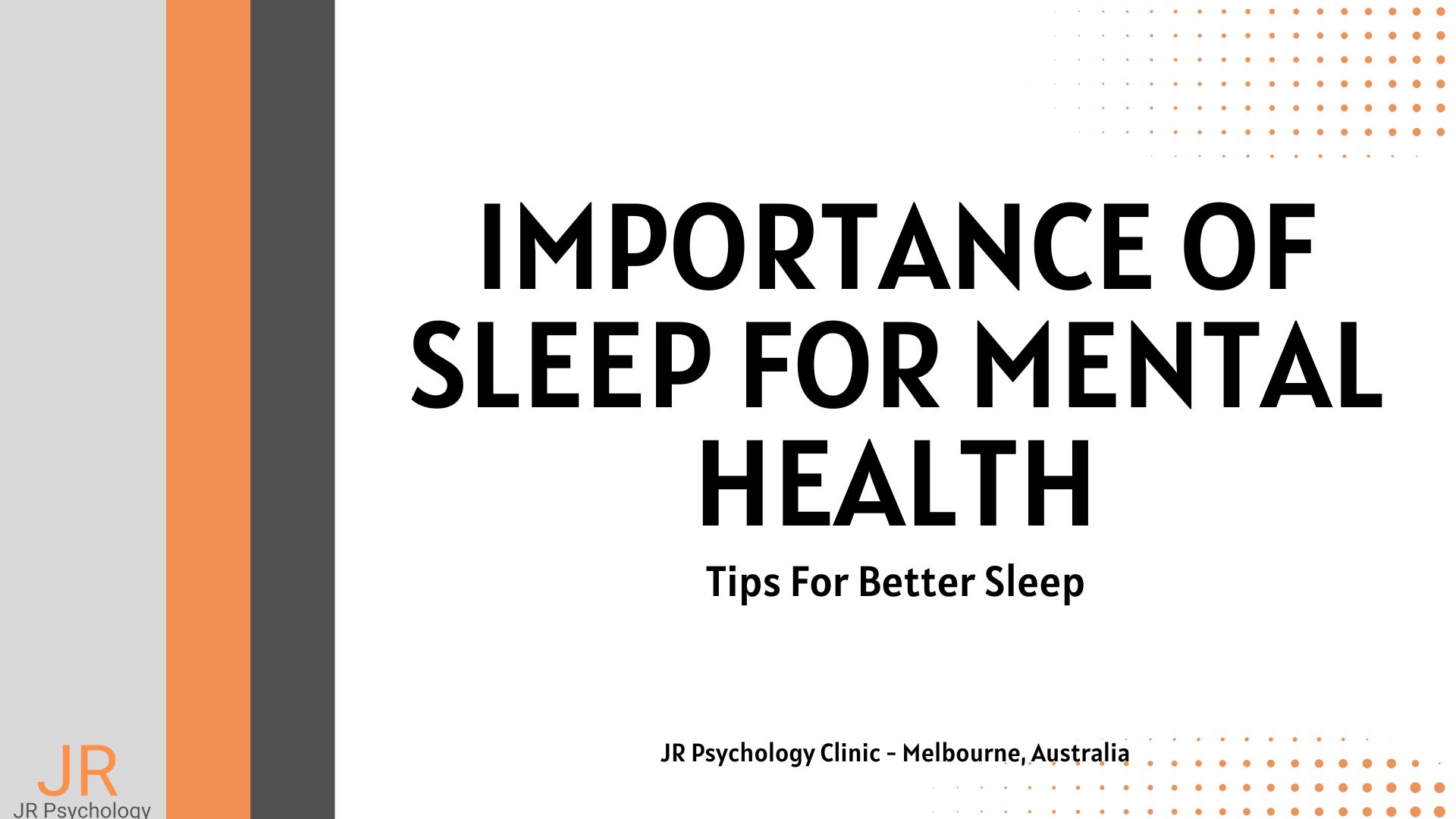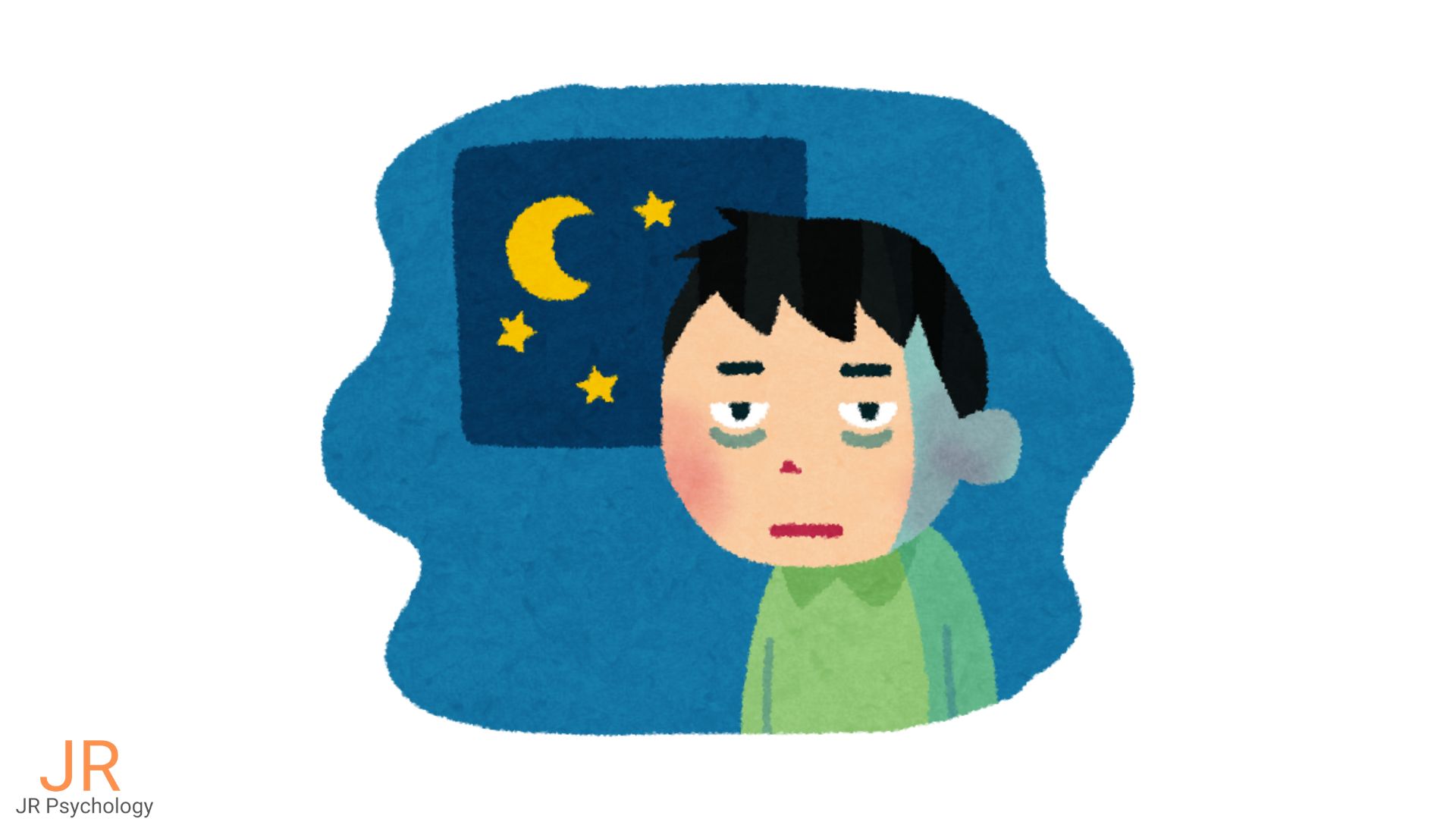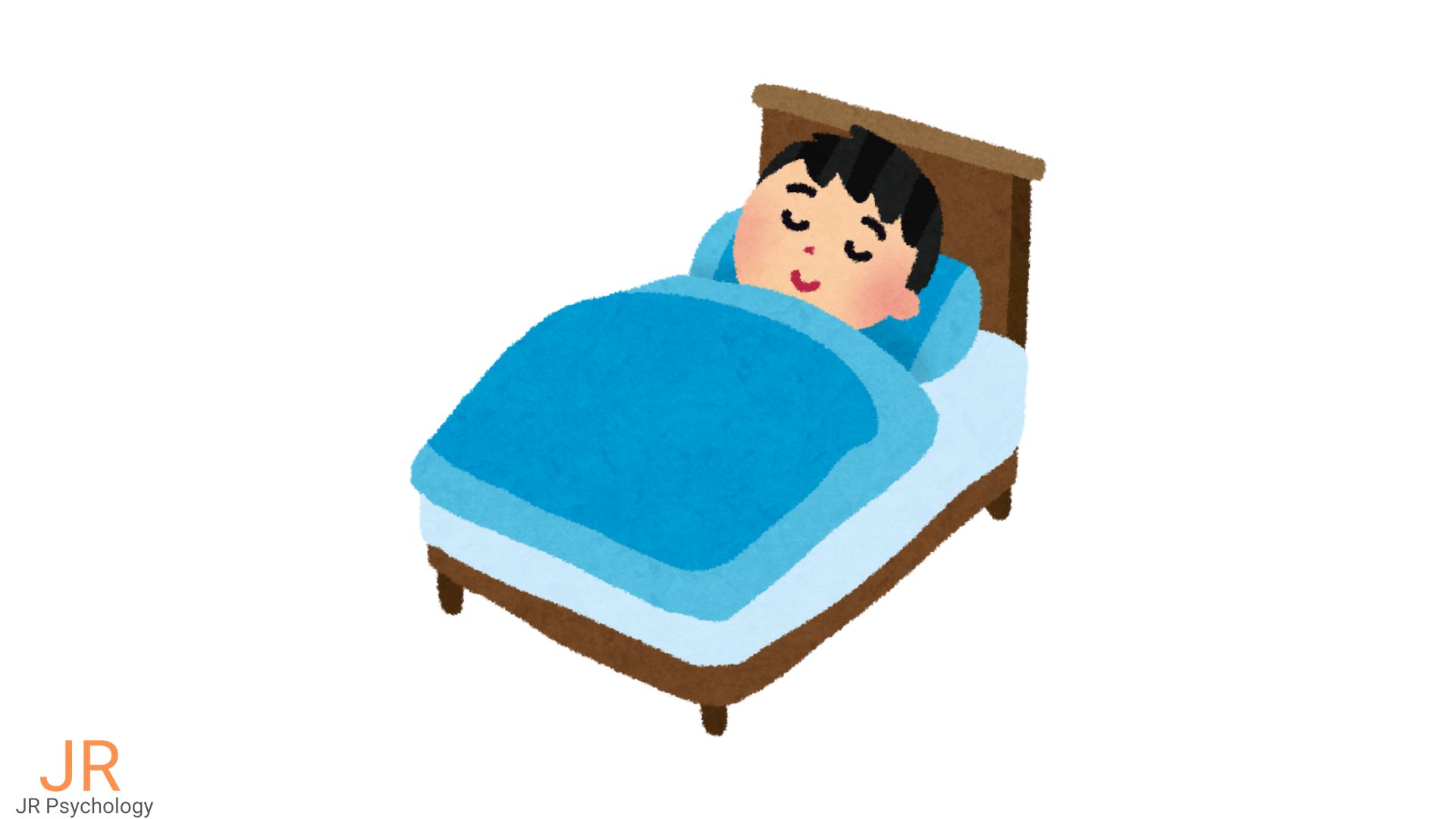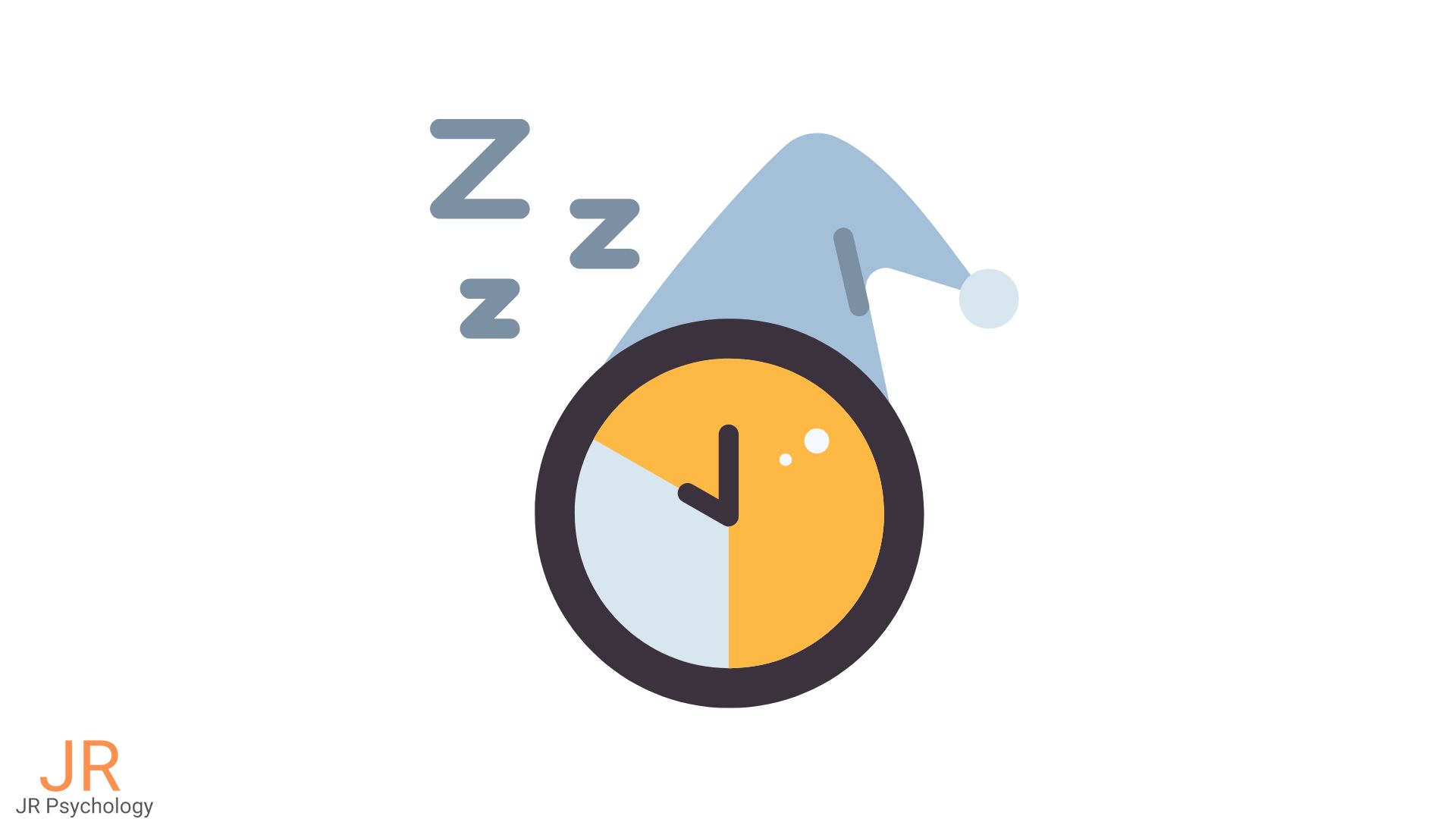Importance of Sleep For Mental Health
 Jayson Rom
Jayson Rom
Introduction
Sleep is more than just a time to recharge; it plays a critical role in maintaining our mental and emotional health. When we’re well-rested, we’re better equipped to handle stress, make decisions, and experience positive emotions. In contrast, a lack of quality sleep can make us more susceptible to mental health issues, from mood swings to anxiety and depression.

Why is Sleep So Important for Mental Health?
Sleep Regulates Mood
Adequate sleep helps keep our emotions in check. A well-rested brain is better able to manage stress and process emotions, reducing the likelihood of feeling overwhelmed or irritated by minor issues. When we’re sleep-deprived, even small setbacks can feel like major challenges.Improved Cognitive Function
During sleep, the brain consolidates memories, processes information, and gets rid of waste. This "mental housekeeping" helps us retain important memories, make clearer decisions, and process thoughts. Sleep deprivation can interfere with our ability to concentrate, make us forgetful, and slow our reaction times.Reduced Risk of Mental Health Issues
Poor sleep has been linked to a greater risk of developing mental health issues like anxiety, depression, and even bipolar disorder. Chronic sleep deprivation can also exacerbate symptoms in individuals who already experience mental health challenges, creating a vicious cycle which then requires an individual to get anxiety treatment Melbourne to improve mental health.Stress Reduction
During deep sleep stages, the body reduces levels of cortisol, the stress hormone, and produces growth hormone, which helps repair cells. A good night's sleep can make us feel more resilient to stressors, while poor sleep can lead to increased stress sensitivity.
Tips For Better Sleep
If you’re finding it hard to get restful sleep, implementing a few lifestyle changes can make a big difference. Here are some evidence-backed tips to improve sleep quality and duration.

Set a Consistent Sleep Schedule
Going to bed and waking up at the same time every day, even on weekends, helps regulate your internal clock. Consistency reinforces a natural sleep-wake rhythm, making it easier to fall asleep and wake up feeling refreshed.Create a Relaxing Bedtime Routine
Develop habits that signal to your body that it’s time to wind down. This might include reading a book, taking a warm bath, or practicing relaxation techniques like deep breathing or gentle stretching. Avoid intense physical activities or mentally stimulating activities close to bedtime.Limit Exposure to Screens Before Bedtime
The blue light emitted from screens (phones, computers, TVs) can interfere with melatonin production, the hormone that regulates sleep. Try to turn off electronic devices at least an hour before bed or use a blue light filter if you need to use your phone or laptop.Create an Optimal Sleep Environment
Your bedroom should be a sanctuary for sleep. Keep it dark, quiet, and cool, as these conditions are conducive to deep sleep. Blackout curtains, a fan, or a white noise machine can help minimize disruptions from light and noise.
Watch Your Diet and Caffeine Intake
Avoid heavy meals, alcohol, and caffeine close to bedtime. While alcohol might make you feel sleepy initially, it can disrupt sleep quality later in the night. Similarly, caffeine can stay in your system for several hours, so it’s best to avoid it in the afternoon and evening.Exercise Regularly
Physical activity during the day can help you fall asleep faster and enjoy deeper sleep. However, avoid vigorous exercise close to bedtime, as it can have the opposite effect by energizing you.Try Relaxation and Mindfulness Techniques
Techniques like meditation, progressive muscle relaxation, or guided imagery can help you calm down, reduce stress, and prepare your mind for sleep. Apps like Headspace or Calm offer guided exercises that can be especially helpful for easing into sleep.Seek Help if Needed
If you’ve tried these tips and still struggle with sleep, consider speaking with a healthcare provider. Chronic sleep issues may be a sign of an underlying sleep disorder, such as insomnia or sleep apnea, which require medical attention. Therapy approaches like cognitive-behavioral therapy for insomnia (CBT-I) are highly effective for treating sleep disorders and related mental health issues.
Conclusion

Sleep is an essential pillar of good mental health. By prioritizing sleep, we can enhance our emotional resilience, sharpen our focus, and improve our overall well-being. Experiment with these tips, and remember that building a good sleep routine takes time and patience. With consistent effort, you’ll be on your way to better sleep and a healthier mind.
Subscribe to my newsletter
Read articles from Jayson Rom directly inside your inbox. Subscribe to the newsletter, and don't miss out.
Written by

Jayson Rom
Jayson Rom
JR Psychology, led by Jayson Rom, is a distinguished mental health practice in Melbourne. As a Psychology Board Approved Supervisor, Jayson specializes in providing expert guidance to aspiring psychologists. With a focus on inclusivity, JR Psychology is a trusted resource for the LGBTQ+ community, offering supportive and understanding counseling services. The practice excels in anxiety and depression treatment, employing evidence-based approaches to foster lasting well-being. Additionally, JR Psychology addresses addiction, providing compassionate and effective treatment options tailored to individual needs. Trust JR Psychology for comprehensive mental health support in Melbourne.